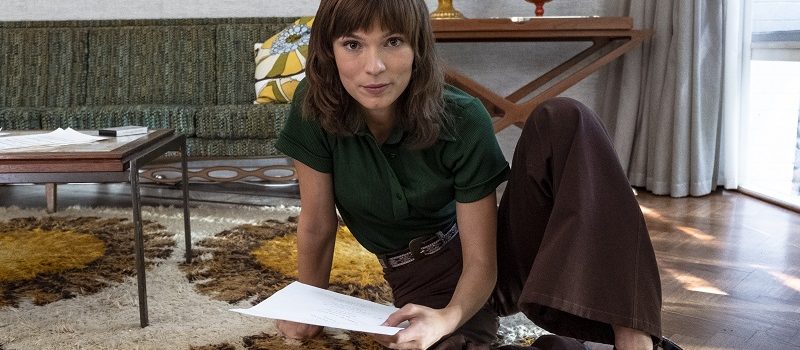Not only did Helen Reddy pen and belt out a female empowerment anthem with I Am Woman that seismically resonated when it debuted in the early 70s, but it has become synonymous with the women’s movement for decades as true equality gets closer but is still out of reach.
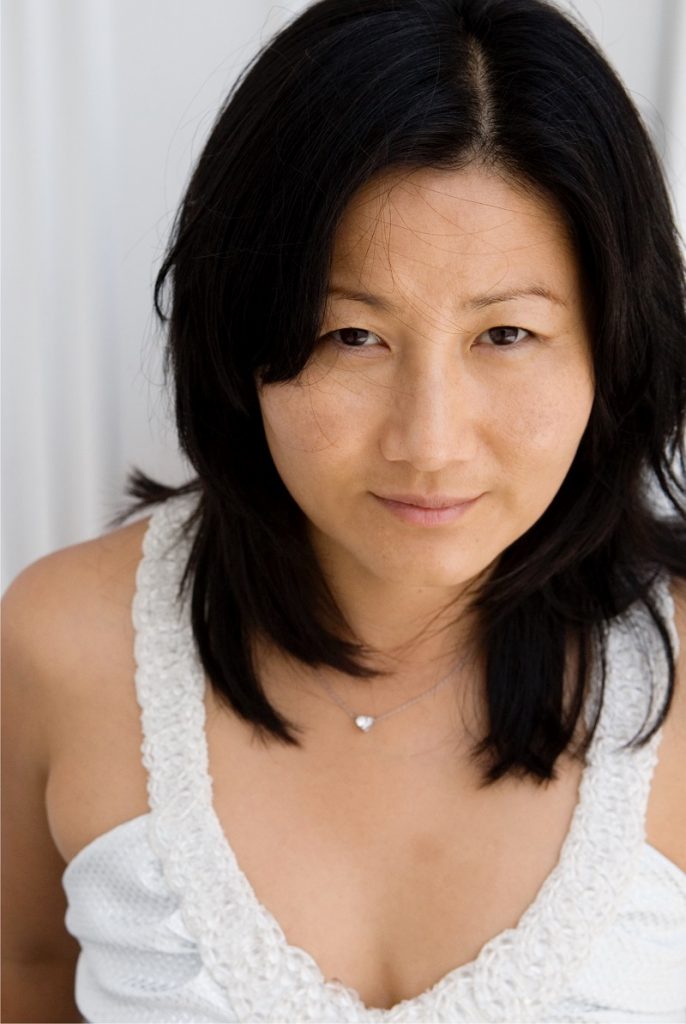
I Am Woman comes from director Unjoo Moon, an Australian helmer who has crafted a stunner that paints the life story of the fellow Down Under citizen and her extraordinary tale of refection, success, and most importantly, serving as a musical tether between hundreds of millions of women the world over. The Movie Mensch caught up with Moon for an exclusive chat about her latest film and why the star Tilda Cobham-Hervey was the actress tapped to carry this entire endeavor.
The helmer also chimes in on why she thinks the song that shares her film’s title remains front and center in the public consciousness and continues to inspire. Moon also tells us about an unbelievable feat her film and the family Reddy achieved in their native Australia as well as the simultaneously heartbreaking and heart affirming friendship that lies at the heart of I Am Woman.
The Movie Mensch: Thanks for taking some time to talk to The Movie Mensch.
Unjoo Moon: Oh, thank you for being interested in the movie. I really loved making this film and it’s such a pleasure to talk about it.
The Movie Mensch: Oh, I really loved it too. Saw it the other night, and there’s a lot I took away from it. I grew up in a household with a mother who deeply appreciated Helen’s gifts. There were a couple of songs that I just remember listening to in the car with my mom that I just never put two and two together that they were Helen’s.
Unjoo Moon: I know. That’s amazing, isn’t it? I even have that same experience when I was making this film. I kept thinking, “Was that Helen’s? I can’t believe that was Helen’s.”
The Movie Mensch: Like Delta Dawn? I could have sworn that it was Tanya Tucker…
Unjoo Moon: It is Tanya Tucker as well! Helen had a greater hit with it.
The Movie Mensch: After the movie, I went right to Spotify and now we have a lot of new songs from Helen on my playlists.
Unjoo Moon: Do you know that we just made history in Australia?! This weekend, I was just in Australia and we opened the movie and we hit the number one trending film in Australia really, really fast. But also, which is very, very cool when we’re talking about music, is that we made history in Australia. It’s the first time a grandmother and a granddaughter has charted in the Top 40 at the same time. Helen’s I Am Woman, more than 50 years later, hit the top 40, and her granddaughter, Lily Donat, who sings our original song Revolution [in the movie], also hit the Top 40. That was really cool.
The Movie Mensch: Oh my gosh, that’s really cool. Wow, that just gave me the chills.
Unjoo Moon: A lot of this film, for me, is about generations of mothers and daughters. I always say I made this movie for mothers and daughters and the sons and men that they love. So, when you talk about your experience with your mother, it really hits home to me. This film is very much about generations and legacy and the relationship between Helen and her daughter.
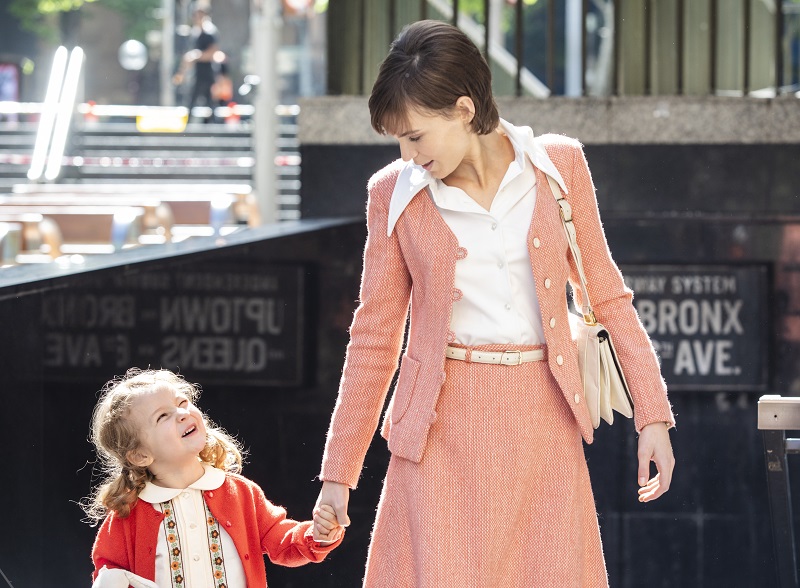
The Movie Mensch: How special was it to get Lily, her granddaughter, into the movie itself?
Unjoo Moon: I really wanted to try and get Lily there. She sings this really beautiful song. When Helen (Tilda Cobham-Hervey) and Lillian (Danielle Macdonald) are saying goodbye in New York, there’s a girl singing in a cafe, and that song gets brought up. It’s right at the end of the movie. I just love that if you listen to the words of Revolution, it really is a follow on from I Am Woman. I Am Woman talks about, “I am woman, hear me roar. I’m strong. I’m invincible.” Then Revolution, the words are pretty much, “we are mothers, we are daughters, we are sisters, we are friends.” Then it goes on to say, “here comes the revolution, voices clear, voices loud.” It was a song that was designed to carry on the legacy of women. I love that Lily got to sing it in the movie.
The Movie Mensch: Oh, that’s really awesome. Now, why was Tilda the perfect choice? After all, this is one of those movies that rests entirely on the casting of the lead. What was it about her that she was your Helen?
Unjoo Moon: Well, we really searched far and wide for Tilda, and I literally looked in five different countries, had different casting directors. Then one day I saw a photo of Tilda. She was standing in the street. It wasn’t even a casting photo! I just happened to see a picture of her somewhere because she’s Australian. I thought, “Who is that girl?” Because she had a slight physical quality that reminded me of Helen. Once I started to dig a little deeper, I realized that she’d already had a very interesting career. She is a really great actor. Then I arranged to have lunch with her. I was a little concerned because she was only 22 when I met her, and she has to play pretty much 25 to 48 in the movie. I was kind of worried that she was going to be too young, but I took the meeting anyway. I realized pretty quickly within the first 15 minutes that she was somebody really special for us to have in the movie.
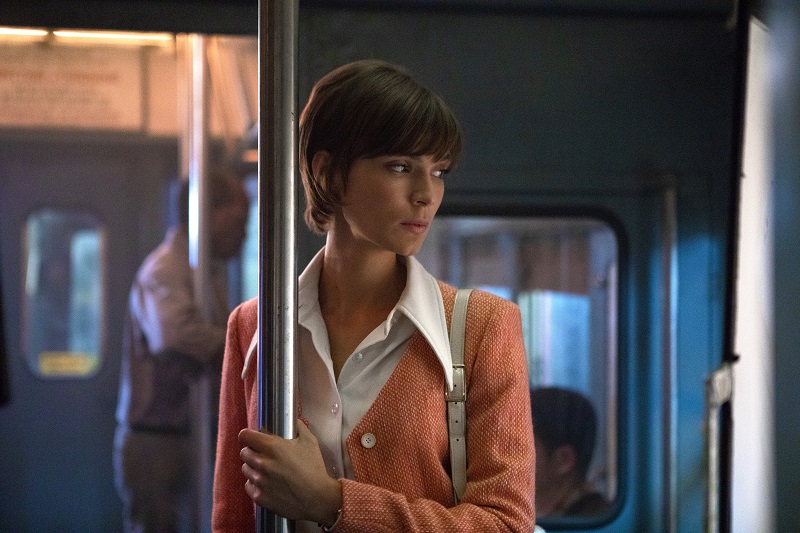
The Movie Mensch: What traits did she possess that nailed it for you?
Unjoo Moon: Tilda’s grown up in a very unique showbiz family, much like Helen did. Helen grew up with a Vaudeville family where she traveled, and she learned how to put on a show everywhere she went. Tilda grew up with a ballet dancer for a mother and a theater director for a father. They traveled the world. She went to festivals. She was putting on shows from an early age and she trained to become a circus performer. There was something about her spirit in having that background, and in that being able to be bold and feisty that really reminded me of Helen. She worked so diligently and so hard. She was cast a year before we started the movie. Then once we started rehearsals, she was doing voice classes, movement classes, just to try to walk like Helen, breathing lessons. She learned how to sing. She did tons and tons of hair and makeup tests and wardrobe tests, and she was there every step of the way. It was really wonderful and amazing to watch her take on the layers of this character and be able to so beautifully melt into this role.
The Movie Mensch: Oh, she did. What do you think it is, and I think maybe you’ve touched on it already a little bit, but what do you think it is about the Helen Reddy story and her career that resonates with people decades after she scored her first hit?
Unjoo Moon: Well, first of all, the song itself and the lyrics itself come from a time, a moment in history that really speaks to women. I think that that moment in history that the song was born out of and Helen’s own personal experience, which really exemplified what a lot of women were going through. She was able to write some lyrics that really had great authenticity. “I’m strong, I’m invisible.” It’s something that a lot of women really wanted to embrace. The song came out of that moment. But from that moment, even though women did an incredible amount of work, and as women, we all stand on the shoulders of those who came before us, I think that it still resonates because there’s still a lot more to do. I think that women still feel that there are things to fight for and those words still embrace all that. Then on top of that, Helen is so much more than the song, and that’s what I really wanted the movie to show.
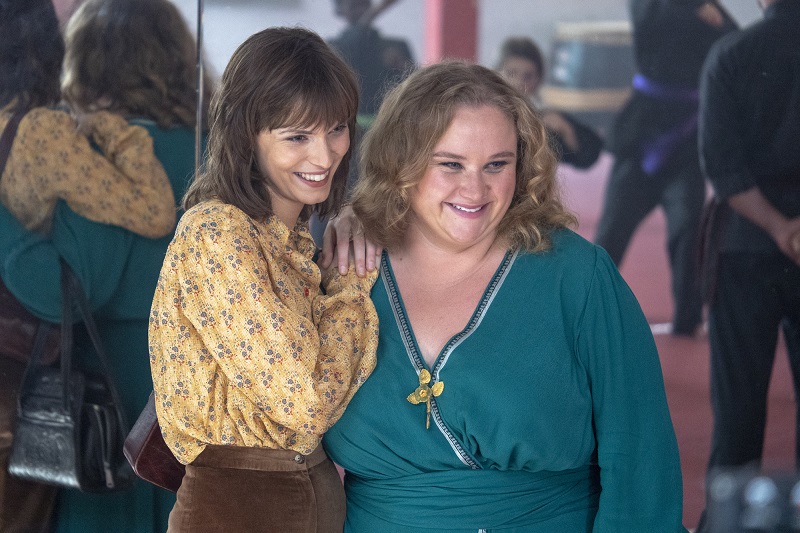
The Movie Mensch: That really comes through especially with her relationship with the writer and liner notes for her album author, Lillian.
Unjoo Moon: Yes! Lillian Roxon, who writes those beautiful liner notes that we incorporate right at the end of the movie where she talks about Helen, she says she wrote those because she wanted the it to not just be the song, I Am Woman. I think in some ways I wanted to make the movie because I wanted the world to know that Helen was more than just I Am Woman. She went on a real personal journey of her own as a woman to find independence and strength and be able to fight back and find what was important for her.
The Movie Mensch: Absolutely. Sometimes in history, there’s a perfect storm of a cultural landscape that meets popular culture artistry, and that was I Am Woman. What does the song mean to you, personally? And second, is it painful or is it still inspiring, that what Reddy aspires for women in her song is something that we are still striving for?
Unjoo Moon: What I find really interesting about listening to the song, and what we tried to imbue into the movie is that at different stages of a woman’s life, and especially for Helen in the movie. She sings the song twice in the movie, and they’re two very different experiences and they really mean something different to her. The first time she sings it, it’s all about the exhilaration of career and success and the rise of the women’s movement. When she sings the song at the end of the movie, it takes on a very different meaning. She’s older and she’s wiser and those words all are very much about the journey that she’s gone on as a woman and the legacy that she’s going to leave behind. I find that really fascinating because I’ve had that same experience with the song. I remember the first time I heard it. I was a very young child. I was growing up in this beautiful suburb in Sydney, Australia. My mother barely spoke English. She was sitting in the front of the car with her friend and the song would come on the radio. I remember sitting in the back of the Volvo station wagon and they’d wind down the window, and then suddenly their hair would be loose in the breeze and they’d sing! I just watched women in my life become bolder and stronger from that music.
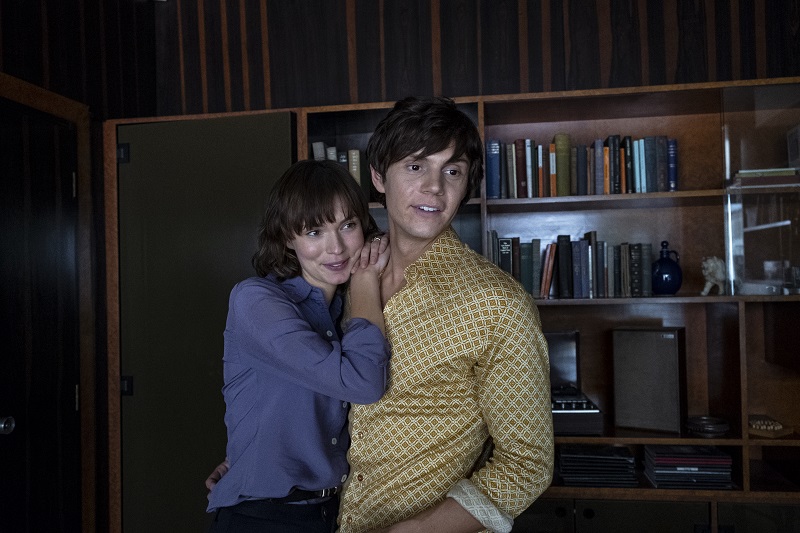
The Movie Mensch: How did this creative process commence for you for I Am Woman?
Unjoo Moon: [I was at] the Women’s March in 2017 and I just started working on the script. I was standing on the steps of the Lincoln Memorial where Helen stands at the end of the movie in the Mobilize for Women’s March. I was standing in that exact same spot, looking at a sea of pink hats, and suddenly there was a sign walking past saying, “I am woman, hear me roar.” Now having made the film and spent a lot of time with Helen, the song again has different meaning to me. They’re very personal journeys for people, but I think that what’s really interesting is the last part of the question that you asked—how does it feel for women now? I tried, in my film, to show that there’s been all this incredible work that’s been done by women. But you walk away from the film feeling like there’s more to do. I hope that the song right now continues to inspire and empower people, especially women. At a time right now when it’s a tough time in the world—there’s so much going on with this pandemic and the upcoming election. There’s many big choices to be made. I really hope that it empowers women to make good choices.
The Movie Mensch: I too recall sitting in the back of our family’s pumpkin orange Volvo station wagon listening to that song. I can’t believe you had that same experience!
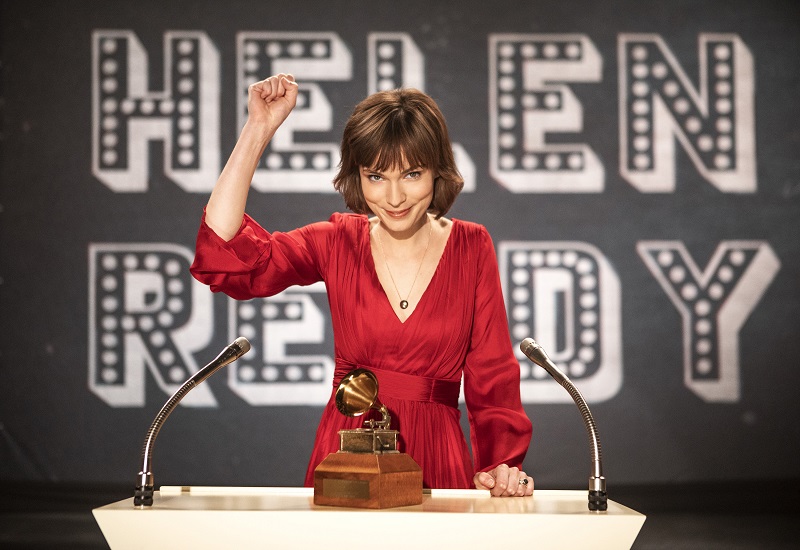
Unjoo Moon: I think we all have that collective experience. That’s what’s really fantastic about it. The song brings back nostalgia. A lot of people I’ve spoken to watched the movie because of their mother. There was a young girl who came up to me after the Toronto Film Festival. I’m getting into my car to go to the next event, and a young 20-year-old girl came running up to me and she said to me, ” I want to thank you for making this movie. I didn’t come here because I know who Helen Reddy is, in fact, I only came because my mother wanted to come. I learned so much about, not only Helen but about my mother’s generation and what’s happened before me. Now I want to go out and make a difference.”

